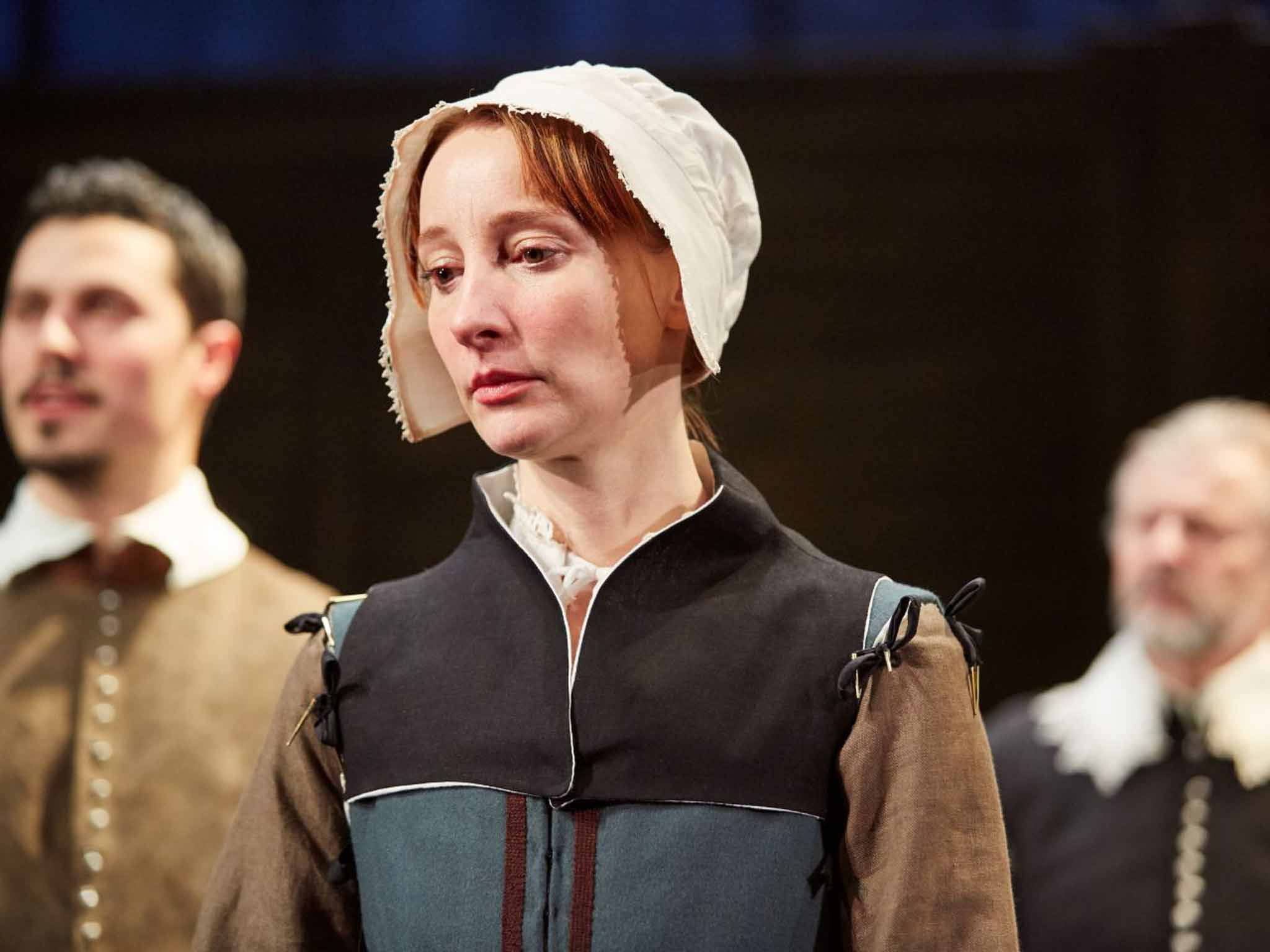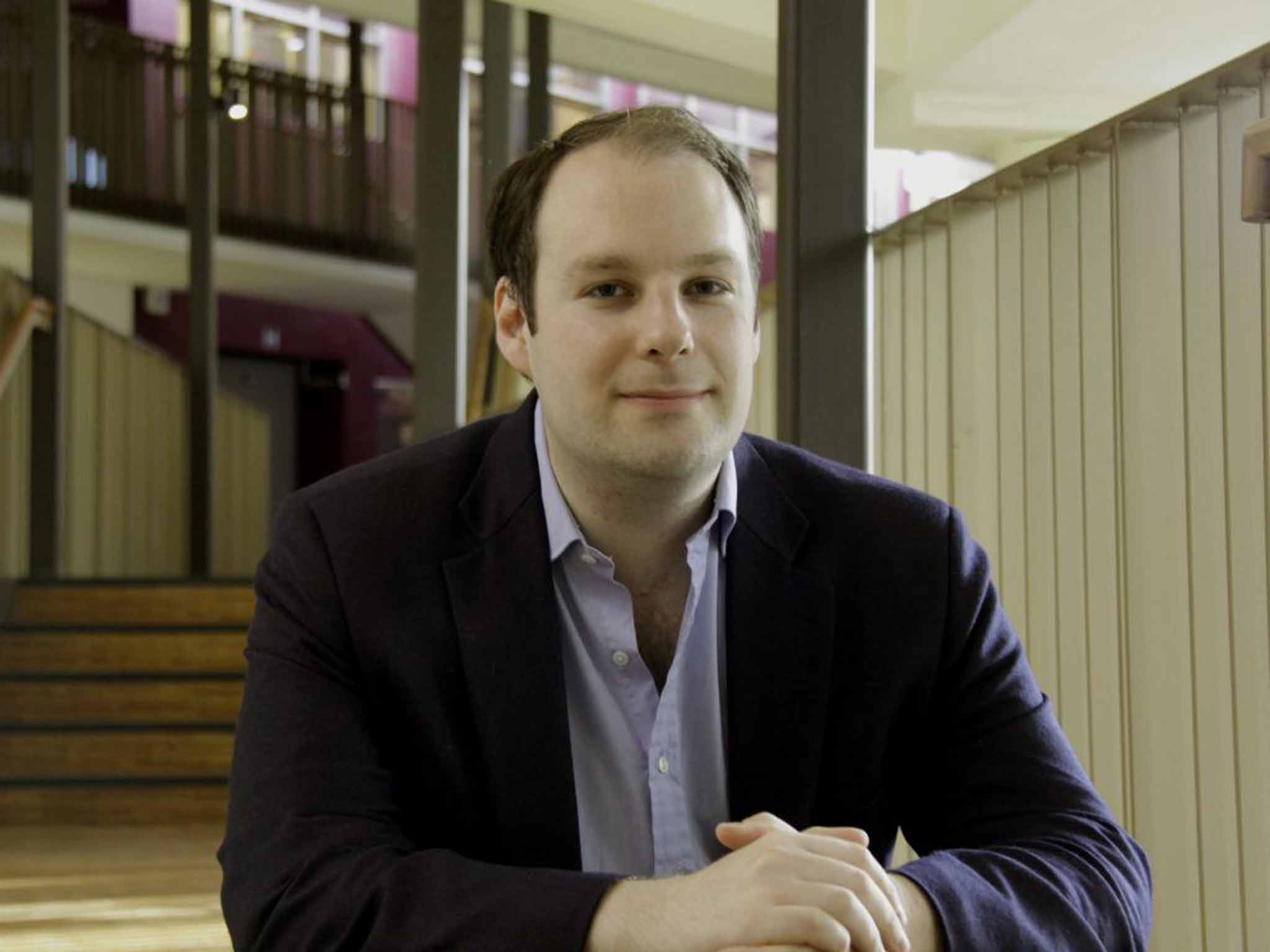Why 'The Herbal Bed' and Shakespeare's daughter are relevant to our age of media intrusion
Peter Whelan's play about accusations of adultery against Shakespeare's daughter remains relevant to our modern ideas of personal privacy, says theatre director James Dacre

Your support helps us to tell the story
From reproductive rights to climate change to Big Tech, The Independent is on the ground when the story is developing. Whether it's investigating the financials of Elon Musk's pro-Trump PAC or producing our latest documentary, 'The A Word', which shines a light on the American women fighting for reproductive rights, we know how important it is to parse out the facts from the messaging.
At such a critical moment in US history, we need reporters on the ground. Your donation allows us to keep sending journalists to speak to both sides of the story.
The Independent is trusted by Americans across the entire political spectrum. And unlike many other quality news outlets, we choose not to lock Americans out of our reporting and analysis with paywalls. We believe quality journalism should be available to everyone, paid for by those who can afford it.
Your support makes all the difference.
In the 400th anniversary year of Shakespeare's death, Royal & Derngate, English Touring Theatre and The Rose Theatre, Kingston are producing The Herbal Bed, a play about Shakespeare's family, set during the final chapter of his life. The production also celebrates the legacy of a more recent playwright, Peter Whelan, with whom I worked on his play The Accrington Pals shortly before his death in 2014.
It is significant that three regional producers are working together on this production because more than most post-war playwrights, Peter's voice can be characterised as a regional one. Born in Staffordshire, his plays shed light on the way that we live our lives today by telling the stories of forgotten people across the country scarred by the crimes of history. Captain Swing looks at the terrible hardships suffered by 19th-century farm workers, The Accrington Pals explores how the tragic loss of a Lancashire battalion in the First World War affects a whole community, and The Bright and Bold Design presents the dilemmas of the women factory artists behind the great craft revolutions of the Potteries. Even where famous characters appear in his plays – most notably Marlowe and Johnson in The School of Night – they do so among a host of ordinary people who are given equal prominence.
An assumption that is all too often made in British theatre today is that plays set in the past must, by definition, be posturing, melodramatic period dramas lacking in subtlety, contemporaneity or political bite. There is plenty of evidence to support this perspective. Often writers consider the history play an opportunity for pageantry, epic ideas and folklore.
Peter preferred to write about the major events of history refracted through the prism of life in largely forgotten communities. His work exhibits a determination to explore and re-imagine the genre of the history play. His interest is in honestly depicting real lives really lived, not by those populating the history books but by the kind of people that find themselves in the audience watching his plays.
The Herbal Bed, written in 1996, explores the arguments that surrounded personal privacy in the early 1990s with the advent of the internet, Diana mania, paparazzi media intrusion and the beginnings of reality television. Peter sets his play in the home and herbal garden of Dr John Hall. It is a peaceful Jacobean domestic scene until we learn that John Hall's wife, Susannah, is Shakespeare's daughter and that the play is based on the historical fact that she was publicly accused of adultery with her neighbour in 1613. And how do we know this historical fact? Because her public trial was documented in the archives of the ecclesiastical court at Worcester Cathedral.
In 1996, at a time when Public Inquiries such as those that led to the Scott and Nolan reports seemed to proliferate – Peter chose to study the inquisitions of Puritan England. In a similar way, Arthur Miller in The Crucible used a tale set in Puritan America to shed light on the McCarthy hearings of the 1950s.
Our current obsession in the UK with public hearings makes The Herbal Bed equally relevant today. Up until the 1990s, Public Inquiries were considered a last resort, but something changed as society began to invest them with an authority that elected politicians increasingly seemed to lack.

Just as the moral authority of the judiciary over those hauled in front of today's inquiries is rarely questioned, so too the moral superiority of the church escaped scrutiny during the Jacobean era. The Herbal Bed portrays this vicious cycle with frightening prescience. Jack Lane points the finger at Susannah Hall, daughter of a well-known anti-establishment playwright and wife of a doctor whose practice of healing is challenging the spiritual omnipotence of the church. Gossips get to work and the rumour mill kicks in. It is decided that a public inquiry by a Church court is the only way to sort right from wrong. Caught up in this clamour, both accuser and defendant can hardly disagree. And so the merry dance begins, with one inquiry leading to another, and one hidden agenda legitimising many more. Axes are ground, reputations tarnished and relationships destroyed. Nobody comes out of the process better off and the facts have become so distorted by the convoluted workings of the law that barely anyone remembers the moral grounds for holding an inquiry in the first place.
The play subtly becomes a state-of-the-nation piece: a powerful exposition of the contradiction between human desires and the social conventions that seek to repress them. Remarkably, it achieves this while also portraying life in Shakespearean England and offering a visceral, tender and wise portrait of a family in crisis.
The power of the play resides in the way it makes an audience continually change their feelings towards the characters. If it has as a major theme it is that word that we use often in a rehearsal room: the “truth”. Is it always right to tell the truth? How best can our justice system locate truth in human affairs? Is the truth often best kept from those whom we love? Can there be such a thing as one truth rather than many truths? Can there be moral justification in telling a lie?
The Jacobean setting of The Herbal Bed and the medicinal properties of the plants in the garden create a fitting backdrop to the conflict, illness and healing in the play. Illness is ever present to remind us of the fragility of life, but also promotes a conscious reflection for each character on the salvation of the soul as well as the body. This sense of internal conflict experienced by each of the characters acts to demonstrate the larger dichotomies at play. Susannah's key dilemma is whether to conform to the puritan social and moral expectations of Jacobean society or to remain true to herself as an individual with the ensuing hurt to her husband. The inscription on Susannah Hall's tombstone informs us not only of the identity of her father and husband – as was customary for most women of the time – but also that she was highly esteemed for her intelligence and compassion: two words rarely attributed to women of that age. Peter depicts her intelligence, compassion and, of course, her passion.
The penultimate scene of The Herbal Bed sees a showdown between a puritanical man of the church and Susannah's husband, a pragmatic man of medicine. The former lives his life according to a strict moral code sourced in scripture. The latter subscribes to the medical and astrological beliefs of the time, which, in the way that they sought a balance of mind and body, are perhaps closer to the moral values of our own age. The Puritans were strongly opposed to the theatre and wanted to suppress any suggestion of immorality in daily life but The Herbal Bed shows us that the enduring power of theatre lies in its ability to portray the vulnerabilities, betrayals, longings and shortcomings in human behaviour so that our own everyday existence becomes bearable. Only by acknowledging the ambiguities of human nature are we able to begin, in our own small way, to make the world a better place.
The play ends as a dying Shakespeare, who had written that the thread of morality is woven in our lives “of a mingled yarn, good and ill together”, is brought to Susannah's house to be nursed by her husband and Susannah realises, “He was a liar, too. Must have lied to my mother every time he came home.”
A defining characteristic of Peter's work is that he never indulges in grandstanding over ethical debates or moral contests in his writing. He never imposes an unrealistic crisis for the sake of good drama. Instead, he brings to his plays a simple, unpretentious belief that good and bad will forever sit alongside one another, that whatever the situation, mankind will always have the capacity to behave well and that good people must find their morality in themselves rather than in the opinions of others.
'The Herbal Bed', Royal & Derngate Theatre, Northampton, to 27 February (01604 624811/www.royalandderngate.co.uk); then touring to 7 May
Join our commenting forum
Join thought-provoking conversations, follow other Independent readers and see their replies
Comments